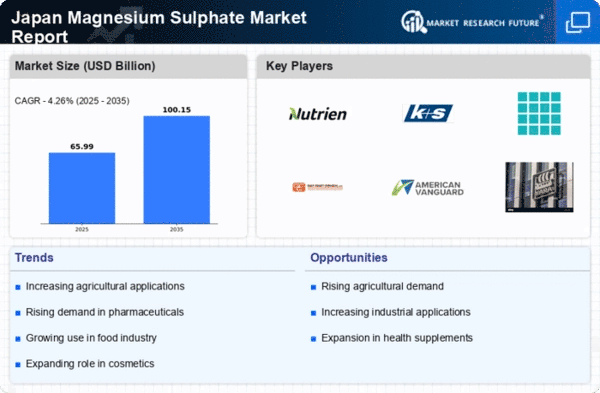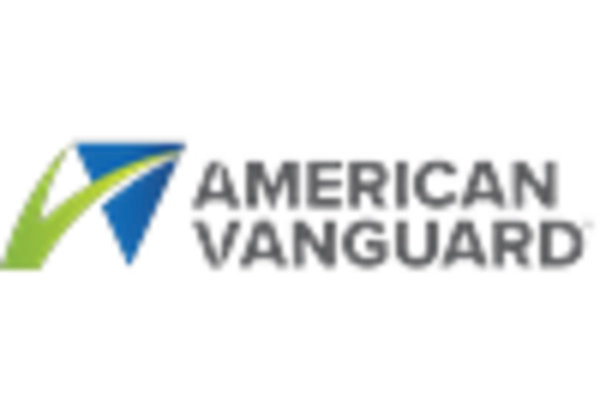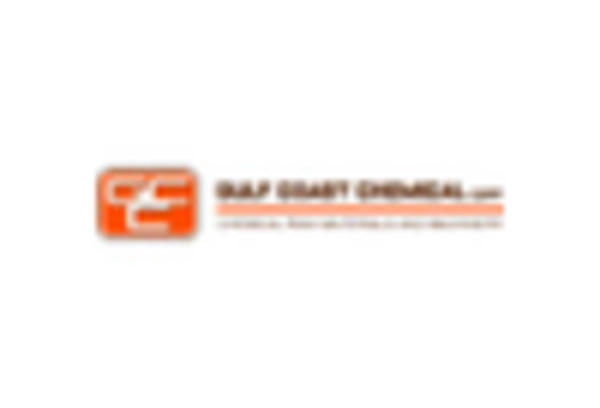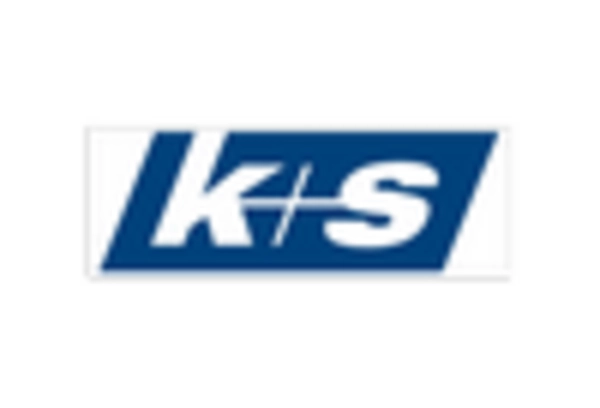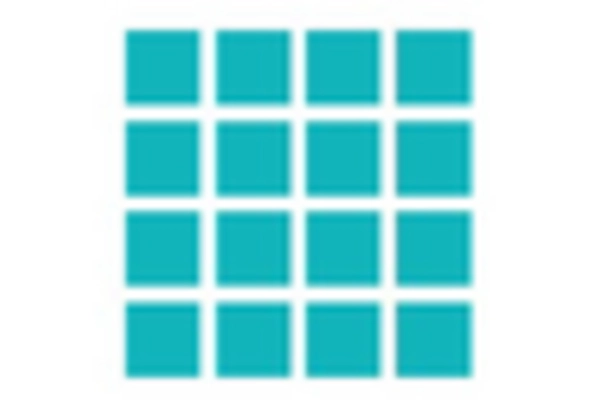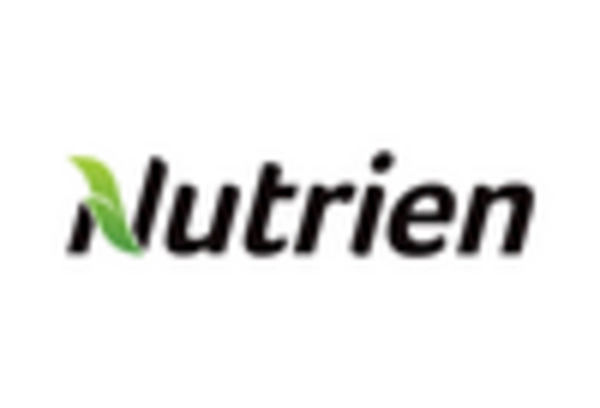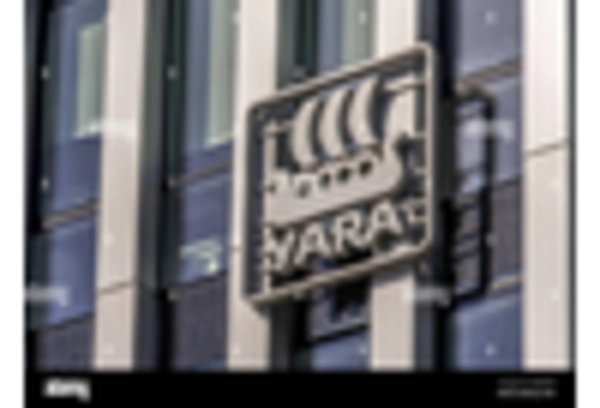The magnesium sulphate market in Japan exhibits a competitive landscape characterized by a blend of established players and emerging companies, driven by increasing demand across agricultural and industrial applications. Key growth drivers include the rising need for fertilizers, particularly in the agricultural sector, and the expanding use of magnesium sulphate in various industrial processes. Major companies such as Nutrien Ltd (CA), K+S AG (DE), and Yara International ASA (NO) are strategically positioned to leverage these trends. Nutrien Ltd (CA) focuses on innovation in product development, while K+S AG (DE) emphasizes regional expansion and sustainability initiatives. Yara International ASA (NO) is actively pursuing digital transformation to enhance operational efficiency, collectively shaping a competitive environment that prioritizes innovation and sustainability.In terms of business tactics, companies are increasingly localizing manufacturing to reduce transportation costs and optimize supply chains. The market structure appears moderately fragmented, with several key players exerting influence over pricing and availability. This fragmentation allows for a diverse range of products and services, catering to various customer needs while fostering competition among established and new entrants.
In October Nutrien Ltd (CA) announced a partnership with a leading agricultural technology firm to develop precision agriculture solutions that incorporate magnesium sulphate. This strategic move is likely to enhance Nutrien's product offerings and strengthen its position in the market by addressing the growing demand for sustainable farming practices. The collaboration may also facilitate the integration of advanced technologies, thereby improving crop yields and resource efficiency.
In September K+S AG (DE) launched a new line of eco-friendly magnesium sulphate products aimed at the horticultural sector. This initiative reflects K+S's commitment to sustainability and positions the company as a leader in environmentally responsible practices. By catering to the increasing consumer preference for sustainable products, K+S AG (DE) is likely to capture a larger market share and enhance its brand reputation.
In August Yara International ASA (NO) unveiled a digital platform designed to optimize the use of magnesium sulphate in crop production. This platform leverages data analytics and AI to provide farmers with tailored recommendations, thereby improving efficiency and productivity. The introduction of such technology indicates Yara's focus on digitalization as a means to differentiate itself in a competitive market, potentially leading to increased customer loyalty and market penetration.
As of November current competitive trends in the magnesium sulphate market are increasingly defined by digitalization, sustainability, and the integration of AI technologies. Strategic alliances among key players are shaping the landscape, fostering innovation and enhancing supply chain reliability. The shift from price-based competition to a focus on technological advancement and sustainable practices is evident, suggesting that future competitive differentiation will hinge on the ability to innovate and adapt to evolving market demands.


